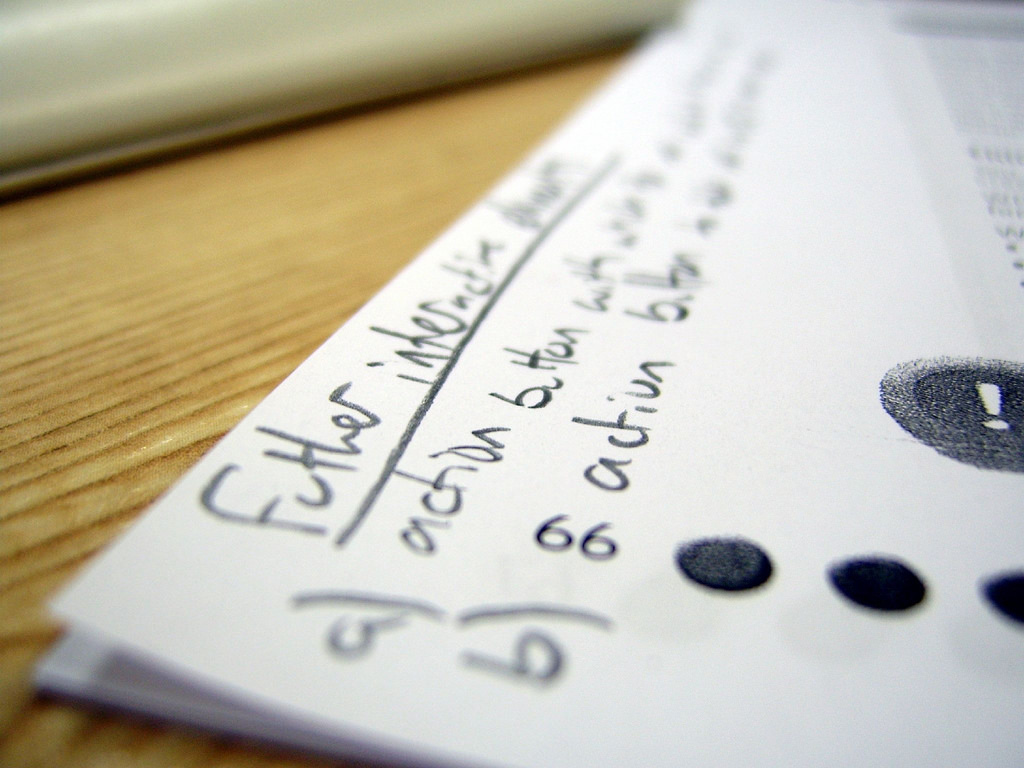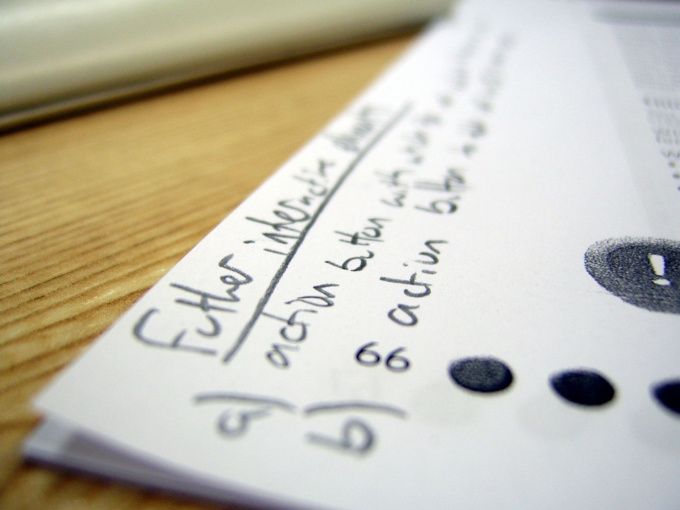Even those who do not usually write plans or lists, still begin to invent them before vacations. Why? Because time is limited, every minute counts!
Having a plan makes it possible to move from one business to another without spending a lot of time on the transition. Let's look at three lists that everyone who cares about their productivity and wants to achieve impressive results should have.
Monthly planning
Look at the next month on the calendar, define the most important and ambitious goals that you would like to achieve in the next 30 days, and write it into your calendar.
Planning successes every month allows seeing that your life is moving forward. This perspective is clearer than when you see only daily business and deadlines.
Of course, in some months we can afford to spend more time achieving success than others. Things like regional gatherings, business trips, doctor's appointments, holidays, and social events are usually planned in advance - you write them in the calendar. Some of them, as you can see, are already planned for the next month.
Many industries have busy seasons, when all hands are required for maximum productivity; in such periods, it may be necessary to postpone the improvement. Fortunately, this happens at certain times of the year, so these moments can also be planned in advance.
Planning for the week
Now that you know how the calendar translates the plans into reality, you can use it hurry your important businesses up and make sure that they receive due attention and quality. Spend a few minutes each week to determine which important tasks are scheduled and when you take on their implementation. These cases cannot be postponed to the last, because quality is important - so plan them in a calendar for a week and give yourself time to concentrate on them in advance.
Such an approach will give understanding whether it will take extra time to finish this task, or it is better to break it into steps and do it within a week, or you need to get information from other people, not every day available. You cannot leave these tasks at the last moment, because their result is important to you.
Planning for the day
Spend five minutes planning the next 24 hours at any convenient time. Number them in order of importance or according to ease of execution.
This is your plan for the day. If it is filled with time-accurate cases, there are fewer free seats in time-flexible tasks. Sometimes such days do not leave any time for small deeds. If most of the time you are at meetings, you will need breaks to take a breath, check out your gadgets or solve urgent questions that have arisen during these meetings. If you plan too much time for intermediate periods, you will only get more upset.
A freer day, when you have only a few planned at the exact time events or not at all, will allow you to do many flexible tasks on time.
The key to successful planning for the day is to compile it before checking gadgets or social networks. If you do the opposite, they will redirect your productivity. Therefore, first take care of planning, and only then proceed to perform tasks and rest.
Based on “Decide. Work Smarter, Reduce Your Stress, and Lead by Example” by Steve McClatchy
Having a plan makes it possible to move from one business to another without spending a lot of time on the transition. Let's look at three lists that everyone who cares about their productivity and wants to achieve impressive results should have.
Monthly planning
Look at the next month on the calendar, define the most important and ambitious goals that you would like to achieve in the next 30 days, and write it into your calendar.
Planning successes every month allows seeing that your life is moving forward. This perspective is clearer than when you see only daily business and deadlines.
Of course, in some months we can afford to spend more time achieving success than others. Things like regional gatherings, business trips, doctor's appointments, holidays, and social events are usually planned in advance - you write them in the calendar. Some of them, as you can see, are already planned for the next month.
Many industries have busy seasons, when all hands are required for maximum productivity; in such periods, it may be necessary to postpone the improvement. Fortunately, this happens at certain times of the year, so these moments can also be planned in advance.
Planning for the week
Now that you know how the calendar translates the plans into reality, you can use it hurry your important businesses up and make sure that they receive due attention and quality. Spend a few minutes each week to determine which important tasks are scheduled and when you take on their implementation. These cases cannot be postponed to the last, because quality is important - so plan them in a calendar for a week and give yourself time to concentrate on them in advance.
Such an approach will give understanding whether it will take extra time to finish this task, or it is better to break it into steps and do it within a week, or you need to get information from other people, not every day available. You cannot leave these tasks at the last moment, because their result is important to you.
Planning for the day
Spend five minutes planning the next 24 hours at any convenient time. Number them in order of importance or according to ease of execution.
This is your plan for the day. If it is filled with time-accurate cases, there are fewer free seats in time-flexible tasks. Sometimes such days do not leave any time for small deeds. If most of the time you are at meetings, you will need breaks to take a breath, check out your gadgets or solve urgent questions that have arisen during these meetings. If you plan too much time for intermediate periods, you will only get more upset.
A freer day, when you have only a few planned at the exact time events or not at all, will allow you to do many flexible tasks on time.
The key to successful planning for the day is to compile it before checking gadgets or social networks. If you do the opposite, they will redirect your productivity. Therefore, first take care of planning, and only then proceed to perform tasks and rest.
Based on “Decide. Work Smarter, Reduce Your Stress, and Lead by Example” by Steve McClatchy



















